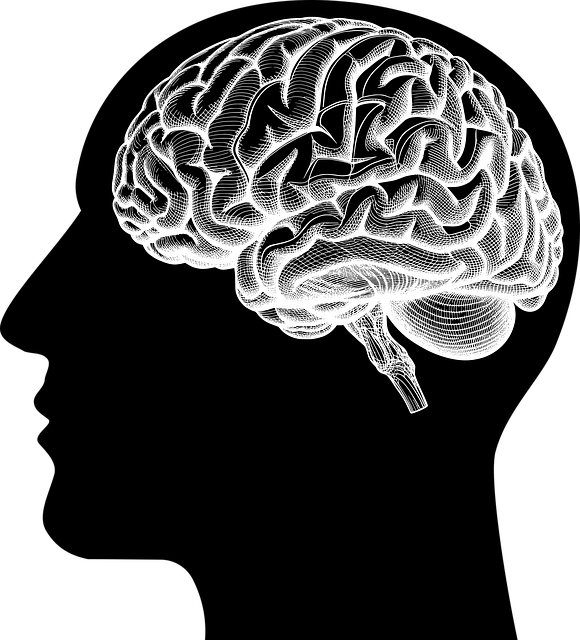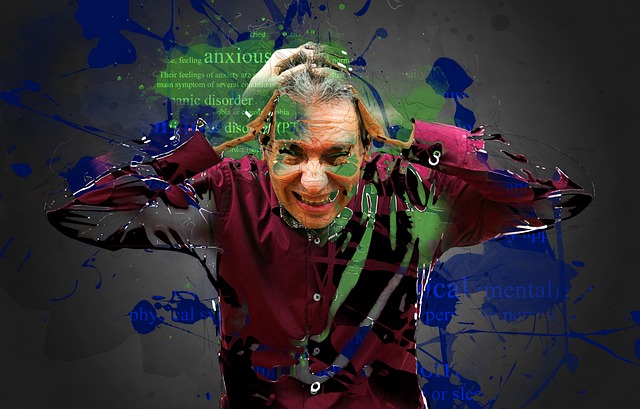Greenwood Village ADD-ADHD Therapy prioritizes cultural sensitivity in mental healthcare, recognizing that diverse backgrounds significantly impact mental health experiences. Therapists tailor their approaches by integrating Emotional Intelligence and Mental Wellness Journaling Exercise Guidance, creating a culturally sensitive environment that validates diverse emotional expressions and respects privacy. This personalized care benefits clients from various backgrounds, prevents provider burnout, and promotes holistic emotional intelligence and well-being. By overcoming language barriers, addressing cultural taboos, and employing active listening, Greenwood Village ADD-ADHD Therapy fosters trust and open communication, enhancing the effectiveness of interventions tailored to individual cultural contexts.
In a world characterized by increasing cultural diversity, providing culturally sensitive mental healthcare is more critical than ever. This article explores the profound impact of cultural diversity on mental health and its significance in therapy. We delve into the challenges faced in offering competent care, highlighting the need for cultural sensitivity in Greenwood Village ADD-ADHD Therapy. By understanding these dynamics, mental health professionals can enhance patient outcomes, fostering inclusive and effective treatment environments.
- Understanding Cultural Diversity and Its Impact on Mental Health
- The Importance of Cultural Sensitivity in Therapy
- Challenges in Providing Culturally Competent Care
- Strategies for Incorporating Cultural Sensitivity in Greenwood Village ADD-ADHD Therapy
- Benefits of Culture-Conscious Mental Healthcare Practices
Understanding Cultural Diversity and Its Impact on Mental Health

In Greenwood Village ADD-ADHD Therapy, recognizing and understanding cultural diversity is a cornerstone of comprehensive mental healthcare. Our world is comprised of diverse communities with unique values, beliefs, and traditions that significantly impact mental health experiences. What works for one individual may not be effective or culturally appropriate for another due to these differences. For instance, concepts like emotional expression, privacy, and seeking help vary across cultures, influencing how individuals navigate their mental wellness journeys.
Embracing cultural sensitivity involves integrating practices such as Emotional Intelligence and Mental Wellness Journaling Exercise Guidance into therapy sessions. By fostering an environment that validates diverse experiences and offers culturally tailored support, therapists can enhance the effectiveness of treatment. This approach not only prevents burnout among healthcare providers but also ensures that clients from various backgrounds receive care that resonates with their cultural identities, ultimately promoting holistic emotional intelligence and well-being.
The Importance of Cultural Sensitivity in Therapy

In the diverse communities of Greenwood Village and beyond, cultural sensitivity is a cornerstone in mental healthcare practice. It ensures that individuals from various ethnic, racial, and cultural backgrounds receive therapy tailored to their unique experiences and perspectives. This approach recognizes that mental health issues can be influenced by societal factors, beliefs, and traditions. By incorporating cultural awareness, therapists create a safe and supportive environment where clients feel understood and respected. This is particularly crucial for managing conditions like Attention Deficit Disorder (ADD) or ADHD, which may present differently across cultures due to varying expectations and coping mechanisms.
For instance, effective Greenwood Village ADD-ADHD therapy considers the client’s cultural context when addressing symptoms. This might involve adapting stress management techniques to incorporate traditional relaxation practices or providing crisis intervention guidance that aligns with the individual’s cultural beliefs about seeking help. Moreover, building confidence through culturally sensitive strategies can empower clients to navigate their mental health journeys with resilience and self-acceptance, fostering overall well-being.
Challenges in Providing Culturally Competent Care

Providing culturally competent care presents unique challenges for mental healthcare professionals. In diverse communities like Greenwood Village ADD-ADHD Therapy regions, patients come from various cultural backgrounds with distinct beliefs, values, and communication styles that can significantly impact their therapeutic journeys. Understanding these nuances is essential to ensuring effective treatment and fostering trust between therapist and client.
One of the primary hurdles is overcoming language barriers, which may necessitate the involvement of interpreters or the use of culturally sensitive translation services. Additionally, cultural taboos surrounding mental health issues can make it difficult for individuals to openly discuss their struggles. Effective communication strategies, such as active listening and clear, non-judgmental language, are crucial in building rapport and encouraging honest expression. Public awareness campaigns development focused on promoting cultural sensitivity and destigmatizing mental health concerns can also facilitate these emotional healing processes.
Strategies for Incorporating Cultural Sensitivity in Greenwood Village ADD-ADHD Therapy

Incorporating cultural sensitivity into Greenwood Village ADD-ADHD Therapy is a multifaceted approach that enriches the therapeutic process. Therapists can start by actively listening to and understanding clients’ cultural backgrounds, beliefs, and values. This foundation enables them to tailor interventions, ensuring that strategies for managing ADD/ADHD symptoms resonate with the individual’s unique cultural context. For instance, incorporating elements of mindfulness practices, which are deeply rooted in many cultures, into therapy sessions can foster inner strength development while promoting stress reduction methods.
Respecting and valuing diverse perspectives also involves exploring and addressing potential cultural barriers to care. Therapists can achieve this by educating themselves on the specific challenges faced by various cultural groups related to mental health. By doing so, they can create a safe and inclusive environment that encourages open communication. Moreover, integrating culturally relevant activities or discussions can foster a sense of belonging and facilitate the exploration of positive thinking as a coping mechanism, ultimately enhancing the overall effectiveness of Greenwood Village ADD-ADHD Therapy.
Benefits of Culture-Conscious Mental Healthcare Practices

Incorporating cultural sensitivity into mental healthcare practices offers a myriad of benefits. By adopting a culture-conscious approach, therapists and professionals can create a safer and more welcoming environment for diverse populations, fostering trust and encouraging open communication. This is especially relevant in communities like Greenwood Village ADD-ADHD Therapy, where individuals from various ethnic and cultural backgrounds seek support for their mental health needs. When practitioners are attuned to cultural nuances, they can provide more personalized care, respecting and valuing the unique perspectives and experiences of each client.
This approach enhances the effectiveness of emotional healing processes by ensuring that interventions align with an individual’s cultural context. Moreover, it promotes better outcomes in mental wellness podcast series production, as therapists can tailor their strategies to resonate with different audiences. Furthermore, culturally sensitive practices contribute to robust risk management planning for mental health professionals, reducing potential ethical dilemmas and enhancing the overall quality of care delivered.
Incorporating cultural sensitivity into mental healthcare practices, like those offered in Greenwood Village ADD-ADHD Therapy, is no longer a consideration but a necessity. By understanding and appreciating cultural diversity, therapists can create safe, inclusive environments that address the unique needs of each client. Overcoming challenges through strategic approaches ensures that everyone receives respectful, competent care. The benefits are clear: enhanced therapeutic outcomes, stronger patient-therapist relationships, and a more equitable mental healthcare system for all.














